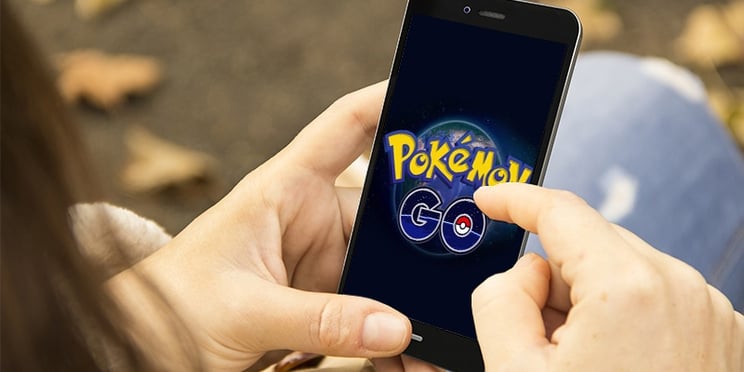
You may be too young to remember Zork, but those of us of the weathered generation remember our adventures in the “Great Underground Empire.” We typed commands into a text processor and awaited the news of whether we had survived our decisions. Remembering the heart-pounding adrenaline rush of exploring the unknown with only a text parser, we can see why today’s world of Pokémon Go has captured millions of players.
Pokémon Go is a location-based augmented reality mobile game that allows users to capture, train and develop virtual creatures (Pokémon) as though they are in the real world. Using an IOS or Android device and location technology, Pokémon can appear anywhere, and players must go to their actual location to capture them.
Millions of people are walking around their cities and towns, getting more exercise and improving their skills in strategy, risk-taking, memory, math, and social cooperation. If we pay attention, we can apply a few lessons to the way we help people learn at work.
The game reinforces our faith in e-learning, mlearning, and virtual reality. In our blended approach to learning, we use role play both in person and in e-learning. We already use rewards, competition, and social interaction to enhance the learning experience. But we can take lessons from Pokémon Go to make our designs even better.
- Emotions reinforce learning. One of the most powerful motivators in gamification is the unexpected. When we attempt something, we may predict it, and we may be right, but there is no certainty. The possibility of defeat adds to the exhilaration we feel when we succeed.
- The skills we teach in leadership development require practice. We can provide role-playing sessions in training, but extending practice beyond the classroom requires learners to practice on people. Virtual reality can give them the rehearsal they need to build confidence before they step out into the fray and engage real people.
- Social interaction enhances the experience, and peer recognition is a powerful motivator. The many photos we see of players gathering in public places reinforces our faith that social interaction happens in real life, not just social media. We can capitalize on this by giving our learners the opportunity to connect.
- Pokemon Go is a repetitive learning experience, but the reinforcement is hidden in the game interaction. As players learn the power and characteristics of each Pokemon they learn how to interact with them, and each interaction builds on the previous experience. The faster players learn, the faster they advance in game levels.
- The number of hacks, cheats, and workarounds discussed on social media reminds us that engagement in gamification only lasts as long as the underlying mechanics are invisible. When users figure it out, the excitement fades quickly.
Many of the online messages about Pokémon Go are between people who are sharing their knowledge about the game and seeking to learn more. It reminds us that people like to learn, and successful learning creates the desire to learn and share. If we build it, they will come -- if we do it well.
For us, the most intriguing thought is what augmented reality may mean to the future of learning, performance support, and problem-solving. Imagine virtual leadership mentors for new managers, talking diagrams for remote technicians, or three dimensional decision models. The possibilities are endless.
What possibilities might exist in your organization?
Pixentia is a full-service technology company dedicated to helping clients solve business problems, improve the capability of their people, and achieve better results.


